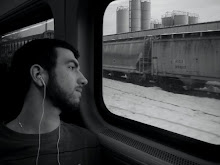
“Paranormal Activity 2”. For those who have seen the first film, saying that name out loud sounds almost laughable. While the original Paranormal Activity really pushed the boundaries of what an independent film could accomplish, it was an entirely self-contained film, so the fact that a sequel was actually made just screams “Hollywood cash in!” With a much bigger budget, a more seasoned director, as well as the inevitable stigma that comes with sequels, could Paranormal Activity 2 possibly live up to the incredibly high-grossing, low budget, R-rated film that terrorized worldwide audiences last year?
Paranormal Activity 2 shouldn’t really be considered a “sequel”, because its story does not actually take place after the story of the first film; it runs parallel to it (though you would never guess that from the misleading title). The story begins several months before the events of the first film, where Kristi Rey (Grayden), the sister of Katie from the first film, is bringing her newborn son Hunter home from the hospital. Through segments of home-movie footage and security camera tape (through which this entire story is told, just like in the first film), we meet Kristi’s husband, Dan (Bolland), her stepdaughter, Ali (Ephraim), the family’s superstitious nanny, Martine (Vivis), and their German Shepherd, Abby. The actors do a very good job across the board convincing you that they could very well be the family that lives next door to you. Everything in their lives seems perfectly average until (you guessed it) strange, unexplainable things begin to occur around their house. And while Kristi and Ali are quick to jump to a supernatural explanation, Dan has a much harder time believing that his house is really haunted by otherworldly spirits.
The true genius of Paranormal Activity 2 is how it seems to effortlessly fit like a glove into the plot of the first movie. Featherstone and Sloat reprise their rolls from the first movie as Katie and Micah, who frequently visit Kristi’s house to see their newborn nephew Hunter. Without spoiling too much, the events of Paranormal Activity 2 greatly expand upon the events from the first film, with many scenes adding as much insight into the plot of the first film as it does this one. We learn not just what Katie and Micah were doing during the large time gaps in the original Paranormal Activity, but we also dig a lot further into Katie and Kristi’s history, which gives much more context to the hauntings. Seeing these events unfold from a different angle gives the story a much bigger scope than anyone who has seen the first movie could have predicted. After seeing this sequel, you’ll never be able to look at the first movie the same way again, which is a huge testament to the writers who clearly put a lot of effort into creating a plot that so effortlessly supplements the first film’s.
Unfortunately, the very existence of a Paranormal Activity 2 is very obviously the result of the success of the first one, and this very blatantly comes through in the film’s structure. Paranormal Activity 2 will not scare you nearly as much as the first one did, but this isn’t because it’s a hacked-together sequel that isn’t as well-structured as the first film. The genius of the original Paranormal Activity was in its agonizingly slow increase in perceived spiritual activity, which left viewers always on edge. It would cleverly heighten tension at times without a payoff only to hit you with a heart stopping “BANG!” when you least expected it. Combine this with a “this could happen to ordinary people like you” atmosphere, and it’s no wonder why this film left some viewers with sleepless nights. The biggest problem with Paranormal Activity 2 is that it sticks to the original’s formula to a T. You realize very quickly that this sequel follows the pacing of the first movie almost beat-for-beat, so those who have seen the first movie will be able to predict exactly when the “scares” are coming, diminishing their effect almost entirely. It’s almost all déjà-vu: the characters talk, they go to bed, something mysteriously moves, the characters wake up and freak out about it, they talk, they go to bed, a door mysteriously slams, they freak out about it, etc. It can definitely leave you bored, wishing you had a remote control so you can just fast-forward to the interesting stuff at the end. The last twenty minutes or so is definitely the highlight of this movie, but even its “Blair Witch”-style action doesn’t make it much less predictable. The film does have its fair share of jump-out-of-your-seat moments, but you just never get that bone-chilling feeling you got when you saw a possessed Katie standing over Micah watching him sleep for hours on end in the first movie.
As far as sequels go, Paranormal Activity 2 could have been a lot worse. Creating a good sequel to Paranormal Activity is nearly impossible task, but you can definitely tell that the creators of this film at least had their hearts in the right place. They definitely nailed the spirit of the first film; the biggest problem is that they actually did it TOO well. Still, Paranormal Activity 2 does offer some very interesting insight into the first movie, and it is for this reason that I can definitely recommend this to fans of the original. Just don’t go into it expecting the same level of fear and suspense the first one gave you.



